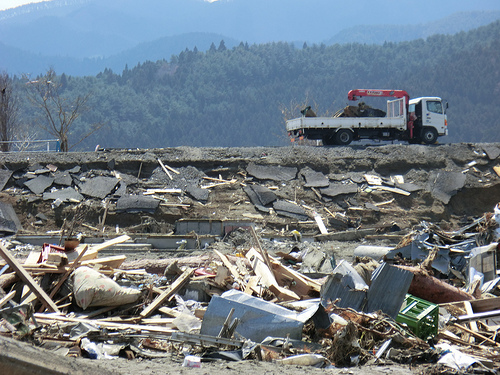In recent years, VW officials have sometimes been quoted touting their “clean diesel” vehicles by paraphrasing one of their competitors—“this isn’t your grandfather’s diesel.” This month VW finally admitted to the U.S. Environmental Protection Agency (EPA) and customers worldwide that it “isn’t your regulator’s diesel” either. The company had programmed the electronics in millions of vehicles to provide false data during required emissions tests.
Audit, Compliance and Risk Blog
Tags: Health & Safety, Environmental risks, Environmental, EHS, EPA, Hazcom, CAA, Transportation
Meeting OSHA Requirements On Employee Exposure And Medical Records
Posted by Jon Elliott on Tue, Sep 22, 2015
A wide variety of Occupational Safety and Health Administration (OSHA) standards require employers to acquire or create documentation of employees’ exposures to potentially hazardous materials and contaminants in their workplaces, and to inform employees of the presence of these hazards. For example, the Hazard Communication Standard (Hazcom) requires most employers to acquire Safety Data Sheets (SDSs) and provide workplace labeling and employee training. Other standards require employers to monitor their workplaces for airborne exposures to contaminants, and to compare such exposures to permissible exposure limits (PELs) or action levels. Some standards require employers to conduct medical monitoring of employees who are subject to such exposures. These records can be vitally important to provide information on long-term (chronic) health effects of exposures.
Tags: Employer Best Practices, Health & Safety, OSHA, Employee Rights, EHS, Hazcom
Although Environmental Health and Safety (EH&S) requirements target hundreds of micro-organisms (primarily viruses and bacteria), regulation of important hazards remain on the drawing boards, awaiting appropriate testing and control methodologies, sufficient resources … and high enough political priorities. Until recently, one of these unregulated pathogens has been the legionella bacterium, first identified in 1976 as the cause of “Legionnaire’s disease” – named after an outbreak at an American Legion convention in Philadelphia traced to the hotel’s air conditioning system. This summer, however, an outbreak in New York has led state and local health agencies to adopt extremely ambitious testing and disinfection programs.
Tags: Employer Best Practices, Health & Safety, Employee Rights, Environmental risks, Environmental, EHS, EPA
How often do you read something that not only changes the things that you think about in life, it also changes the things you do?
Tags: Health & Safety, Environmental risks, Environmental, EHS, Greenhouse Gas, ghg, Hazcom
OSHA Proposes To Expand Enforceability Of Injury And Illness Reporting Requirements
Posted by Jon Elliott on Tue, Aug 18, 2015
The Occupational Safety and Health Administration (OSHA) has just proposed to revise its requirement that employers prepare and maintain records of occupational injuries and illnesses as they occur – in “I&I Logs.” (I blogged about these requirements here). Employers must also post annual I&I Summaries in each workplace, and respond to survey questions if asked by OSHA or the Bureau of Labor Statistics.
Tags: Employer Best Practices, Health & Safety, OSHA, Employee Rights, Environmental risks, Environmental, EHS, Hazcom
Valley fever is an illness that usually affects the lungs and is caused by the microscopic fungus known as Coccidiodes immitis, which lives in the top two to twelve inches of soil. While the fungal spores may be present in soils throughout California, they are endemic in the Central Valley counties of Fresno, Kern, Kings, Madera, Merced, San Luis Obispo, and Tulare.
Tags: Employer Best Practices, Health & Safety, Employee Rights, California Legislation, Environmental risks, Environmental, EHS
Management of chemicals by your organization raises a host of environmental health and safety (EH&S) issues. Some of those issues are represented by legal and regulatory compliance requirements, others by formal but non-binding programs that range from company policies to ISO certifications. In response, organizations adopt and implement a wide variety of EH&S programs, including very broad ones (e.g., compliance with the Hazard Communication Standard) as well as very narrow ones (e.g., programs for managing entry into Confined Spaces). Organizations with sufficient resources and the will to organize themselves will create systematic programs to evaluate EH&S issues to ensure they’re addressed, and to design and coordinate programs in ways that do so effectively and efficiently. (In 2013-2014 I prepared a series of e-books that outlined EH&S regulatory requirements triggered by chemicals - click here to download).
Tags: Audit Standards, Health & Safety, OSHA, Environmental risks, Environmental, EHS, Hazcom
Last weekend’s disastrous earthquakes in Nepal are a reminder that natural disasters can strike anywhere. Employers can and should plan for a broad range of events, and can apply guidance from occupational safety and health agencies standards when doing so. The U.S. Occupational Safety and Health Administration (OSHA) requires employers with specified activities to prepare and implement emergency action plans (EAPs), provides guidance for EAPs, and recommends that all employers prepare these plans. Employers can use this structure to prepare for earthquakes.
Tags: Corporate Governance, Employer Best Practices, OSHA, Environmental risks, Environmental, EHS, EPA
California Water Crisis = Rising Consumer Costs for a Vanishing Resource
Posted by STP Editorial Team on Thu, Apr 09, 2015
Although water covers nearly three-quarters of the earth’s surface, only 0.033 percent of the world’s total supply is fresh water available for human use. Water is essential to every form of life, but is often taken for granted by consumers, who generally have maintained an attitude that plentiful water of the highest quality will always be available and is their right, a notion perpetuated by legislation. In 2013 the State Water Resources Control Board (SWRCB) established, under Section 106.3 of the California Water Code, that every human being has the inherent right to clean, safe, affordable, accessible, and adequate water for human consumption, cooking, and sanitation. That’s wonderful…when there is plenty of water to go around.
Tags: Environmental risks, Environmental, EHS, EPA, climate change
Although the pace of fracking projects rises and falls with changes in oil prices, regulation of fracking develops at slower and steadier rates. This month, the U.S. Bureau of Land Management (BLM) has completed nearly five years of rulemaking by revising its rules for oil and gas production from federal and Indian lands, to add requirements for hydraulic fracturing projects. These rules update and expand drilling permit rules in place for three decades. BLM reports that production from over 100,000 onshore oil and gas wells on federally-managed land accounts for 11 percent of U.S. natural gas supply and five percent of its oil, and that over 90% of wells currently being drilled on these land involve hydraulic fracturing.
Tags: Environmental risks, Environmental, EHS, EPA, Greenhouse Gas, fracking, hydraulic fracking










